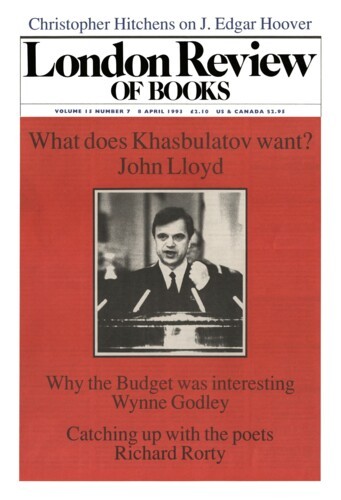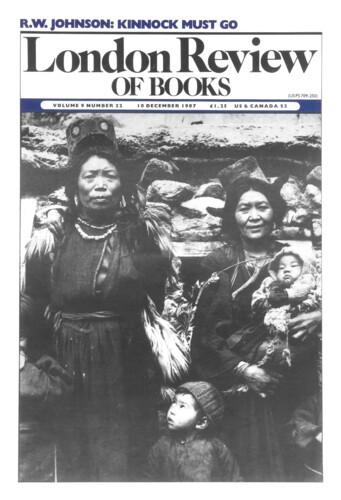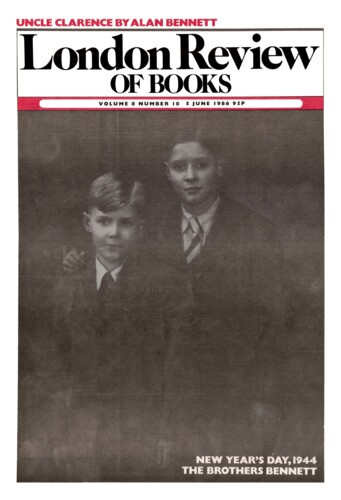D.G. Wright
D.G. Wright whose books include Democracy and Reform 1815-85 and Napoleon and Europe, is Principal Lecturer in history at Huddersfield Polytechnic.
Swanker
10 December 1987
Uncle Clarence
5 June 1986
Criminal Statistics
20 October 1983
Great Tradition
D.G. Wright, 20 October 1983
In the present embattled climate, with Thatcherite artillery trained on the crumbling ramparts of higher education, academics need to keep their powder dry and prepare for a prolonged siege. Although monetarist economists and cost accountants may feel reasonably safe, Norman Tebbit has recorded his dim view of effete scholars who study tribal customs on the Upper Volta, while Sir Keith Joseph’s hostility towards the social sciences has involved the once-mighty Social Science Research Council in acronymic self-torture. If the present Government’s narrow range of useful and acceptable disciplines means that anthropology and sociology seem destined for slow strangulation, then history, according to current rumours, is to be given a frontal lobotomy. Our present political masters apparently resent the work of professional historians in undermining the Anglocentric tradition on which British self-confidence was bashed for centuries. Basking in the afterglow of a landslide victory and fully aware of the potency of the Falklands factor, Tory politicians like Lord Hugh Thomas, the distinguished historian of Spain and Cuba, see the task of historians as the creation of a usable past which will confirm the version of history peddled in the popular press, furnish yet another justification of their claim to authority and boost the sagging morale of an embittered populace. We therefore face attempts by the New Right to revive the old patriotic Imperialist tradition, with students and school-children subjected to appropriately uplifting selections from British history, perhaps including our boys shinning up the Heights of Abraham, marching boldly from Kabul to Kandahar and yomping across Goose Green. Efforts will no doubt be made to convince bored and alienated youth that Mrs Thatcher’s Cabinet stands in direct line from liberty-loving Saxon monarchs, bold Elizabethan privateers, sober Puritan possessive individualists, earnest penny-pinching Victorian shopkeepers and those resolute chaps who, ignoring the fainthearts, went with the flag to Pretoria and defeated the General Strike.
Read anywhere with the London Review of Books app, available now from the App Store for Apple devices, Google Play for Android devices and Amazon for your Kindle Fire.
Sign up to our newsletter
For highlights from the latest issue, our archive and the blog, as well as news, events and exclusive promotions.




